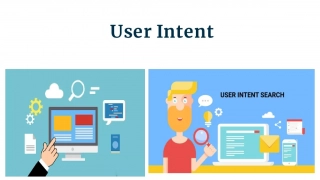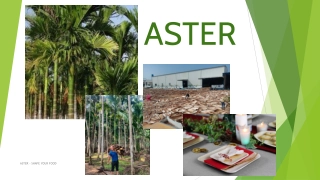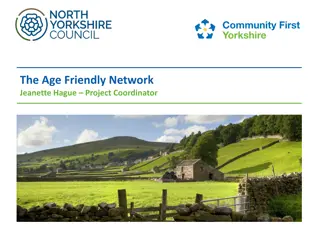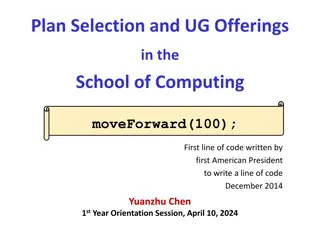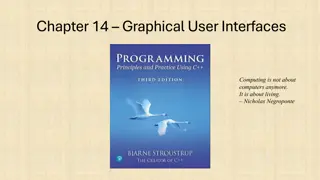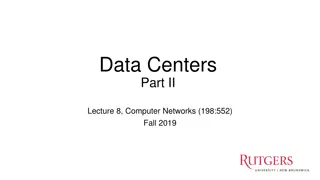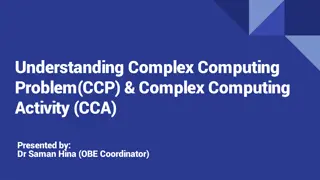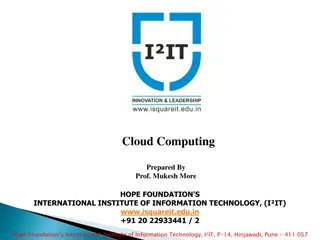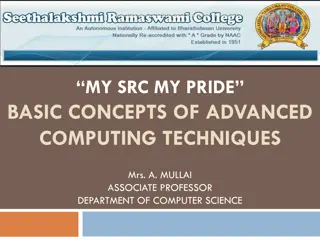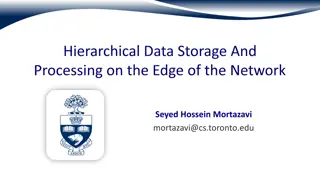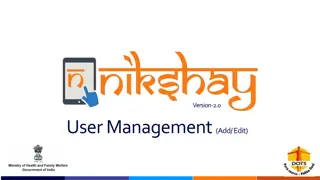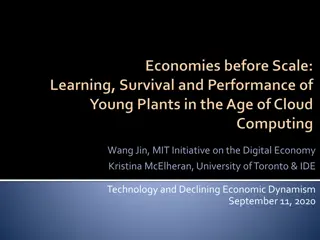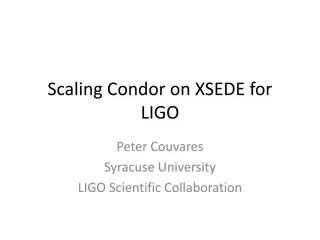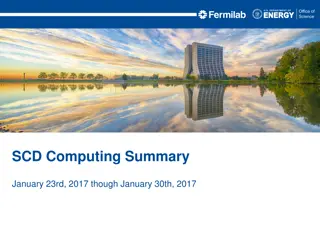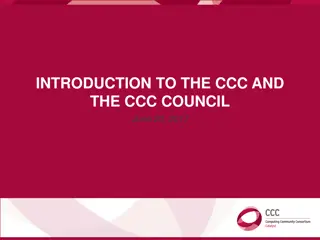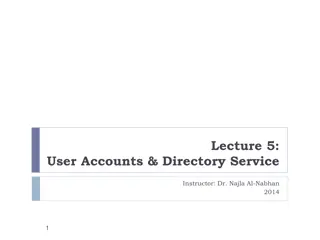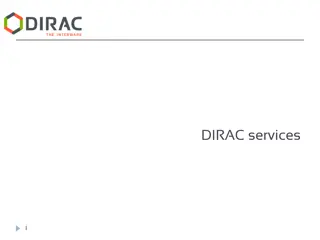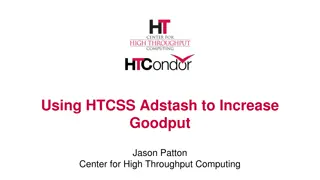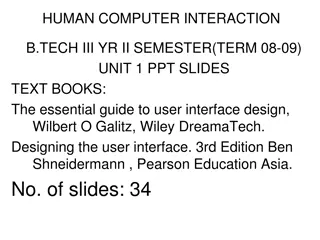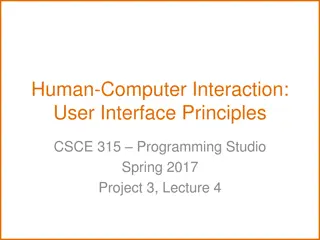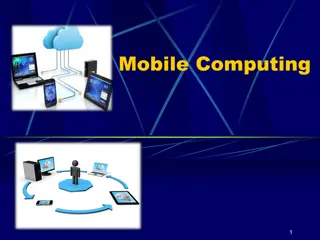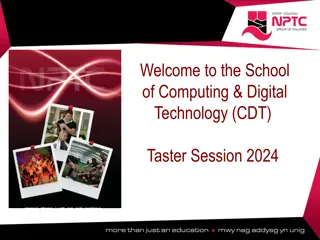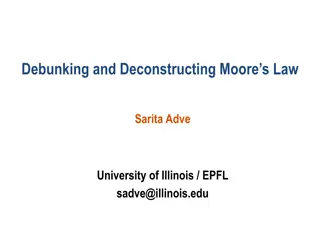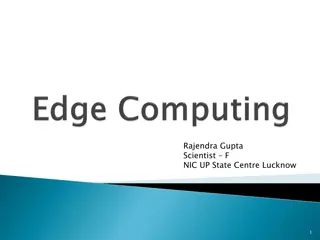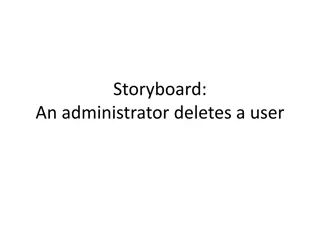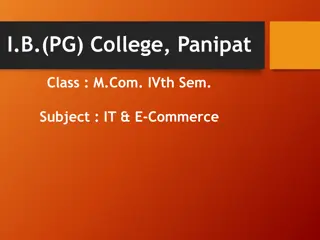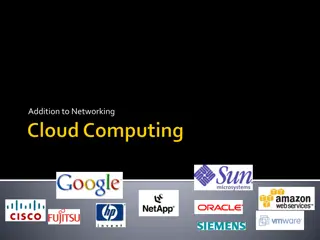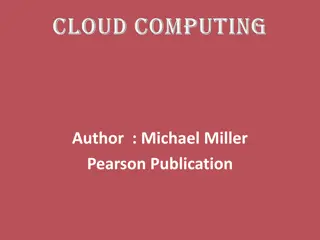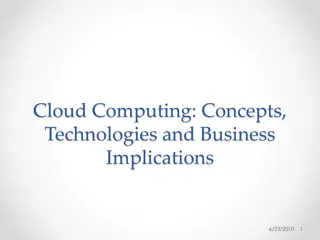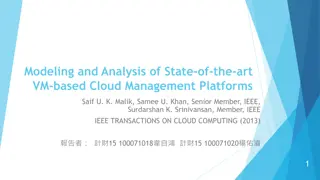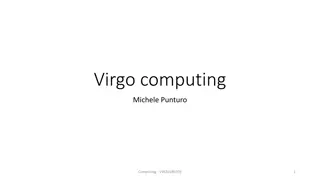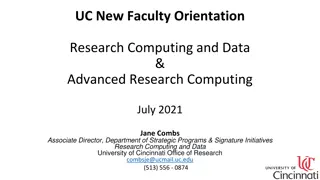Maximizing Impact: The Role of Rich Snippets in SERPs"User Intent
User intent, also known as search intent, refers to the underlying goal or purpose a user has when performing an online search. It goes beyond the literal interpretation of keywords and focuses on understanding why a person is searching. Recognizing and catering to user intent is crucial for creatin
3 views • 10 slides
ASTER - Shaping a Plastic-Free and Eco-Friendly Food Industry
ASTER is a visionary brand specializing in plant-based compostable foodservice products, promoting eco-friendly and sustainable solutions to reduce plastic pollution. With a range of environmentally-friendly catering disposables made from renewable materials, ASTER focuses on creating plastic-free a
3 views • 12 slides
The Age-Friendly Network - Empowering Healthy Ageing in North Yorkshire
The Age-Friendly Network, led by Project Coordinator Jeanette Hague, aims to combat ageism, promote intergenerational understanding, and address social perceptions of older individuals in North Yorkshire. The initiative seeks to create an all-inclusive, age-friendly society through active involvemen
1 views • 11 slides
Computing Degree Plans and Offerings at School of Computing
Explore the diverse degree plans and offerings at the School of Computing, including Honours and General degrees, minors, and certificates in Data Analytics. Plan selection is crucial for advancing to second-year courses, with automatic acceptance and pending list options available. Discover the var
0 views • 20 slides
The Evolution of Graphical User Interfaces in Computing
Graphical User Interfaces (GUIs) have transformed computing into a more user-friendly and interactive experience, emphasizing the shift from technology-focused to human-centric living. This chapter delves into the various aspects of GUIs, including I/O alternatives, common GUI tasks, programming per
1 views • 32 slides
Understanding Data Centers and Cloud Computing Technologies
Explore the world of data centers and cloud computing through topics such as data center functionalities, cloud computing advantages, challenges in Data-Center Networks (DCNs), cost breakdowns, server utilization considerations, and more. Delve into the intricacies of managing large-scale computing
0 views • 20 slides
Understanding Parallel and Distributed Computing Systems
In parallel computing, processing elements collaborate to solve problems, while distributed systems appear as a single coherent system to users, made up of independent computers. Contemporary computing systems like mobile devices, IoT devices, and high-end gaming computers incorporate parallel and d
1 views • 11 slides
Understanding Complex Computing Problem (CCP) and Complex Computing Activity (CCA)
Dr. Saman Hina, along with Dr. Farrukh Arif and Dr. Maria Waqas, presents information on Complex Computing Problem (CCP) - a problem involving technical, computing, and other issues with no obvious solution, requiring deep knowledge and analytical thinking. CCP is evaluated through predefined rubric
4 views • 19 slides
Understanding Cloud Computing and Its Components
Cloud computing, offered by the Hope Foundation's International Institute of Information Technology, is Internet-based computing that involves remote servers sharing data-processing tasks and resources. Users can access software without local hardware requirements, empowering them with agility and e
0 views • 15 slides
Exploring Basic Concepts of Advanced Computing Techniques
Delve into the world of advanced computing techniques with Mrs. A. Mullai as she discusses networks, computing, and pervasive (ubiquitous) computing. Discover how networks facilitate data exchange, the role of computing in designing hardware and software systems, and the trend of embedding computati
2 views • 40 slides
Exploring Emerging Technologies in Cloud Computing
Cloud computing revolutionizes accessibility to computing resources through shared pools. Next-generation applications, edge computing, and web applications on the cloud are shaping the future. CloudPath offers a platform for executing third-party applications across distributed data centers. Real-w
0 views • 16 slides
Understanding Cloud Computing, Edge Computing, and Their Applications
Cloud computing entails centralized processing of data on powerful servers, offering scalable resources over the internet. Edge computing brings processing closer to data generation points, reducing latency and enhancing security. Both paradigms cater to different needs such as IoT, autonomous vehic
0 views • 18 slides
Efficient User Management System for Health Facilities
Record and manage user details effectively with the new Version 2.0 User Management feature. RNTCP has now registered over 35,000 PHIs, 140,000 Private Health Facilities, 15,000 Private Labs, 31,000 Private Chemists, across 700 Districts and 8,000 TUs in Nikshay. Enhance operations by editing TU pro
0 views • 26 slides
Exploring Orto-Computing: Bridging the Gap Between Formal and Phenomenological Computing
Meaningful experiments suggest a transition from the formal, Turing-based approach to a structural-phenomenological one called Orto-Computing. This innovative concept integrates mind-matter interaction and non-formal functions within computational systems, offering potential solutions to complexity
0 views • 18 slides
Impact of Cloud Computing Technology on Young Firms' Performance
The technology shock of cloud computing has significantly influenced the survival and performance of young firms. Young firms face higher uncertainty, benefit from experimentation, and are resource-constrained, making cloud computing's elastic, fast, and generic nature particularly advantageous. Thi
0 views • 21 slides
Scaling Condor on XSEDE for LIGO - Collaborative Computing Project
The project aims to evaluate the utilization of XSEDE resources by LIGO for large-scale computing tasks, with a focus on distributed computing challenges and fostering a research computing community. Various aspects such as political, cultural, and technical narratives surrounding the collaboration
0 views • 28 slides
Summary of SCD Computing Metrics and Scientific Computing for January 23rd - January 30th, 2017
This summary covers a range of topics related to scientific computing metrics and SCD computing services from January 23rd to January 30th, 2017. It includes details on service areas, offerings, job operations, resource provisioning, database management, system monitoring, and more. The summary also
0 views • 5 slides
Overview of the Computing Community Consortium
The Computing Community Consortium (CCC) was established in 2006 under the Computing Research Association (CRA) to develop a vision for computing research and communicate it to stakeholders. It aims to align computing research with national priorities, encourage high-impact research, and groom new l
0 views • 48 slides
Understanding User Accounts and Directory Services in Network Computing
Explore the role of user accounts and directory services in network-centric computing infrastructure. Learn about Directory Servers, User Administration in Unix, and the concept of Group Accounts in Unix. Discover how Directory Services provide centralized repositories for managing information, enab
0 views • 9 slides
Advanced Cloud Computing Solutions with DIRAC Services
Explore advanced cloud computing solutions offered by DIRAC services at IN2P3, including maintenance, operation, VM scheduling, and contextualization. Learn about dynamic VM spawning, cloud endpoint abstraction, and virtual machine monitoring for efficient resource allocation. Stay updated on the la
0 views • 15 slides
Enhancing Goodput with HTCSS and Adstash in High Throughput Computing
Explore how utilizing HTCSS and Adstash can boost goodput in high throughput computing environments. Learn about usage reporting with accounting ads, storing job history in Elasticsearch, and common challenges to overcome. Discover insights on CPU core hours delivery, GPU usage, memory analytics, us
0 views • 27 slides
Introduction to Mobile Computing Principles and Designing Mobile Applications
Mobile computing systems involve computing capabilities that can be utilized while on the move, leveraging wireless connectivity, small size, and mobile-specific functionalities. The history of mobile computing traces back to military origins and has evolved with technologies like GPS and wireless t
0 views • 98 slides
Introduction to Boston University's Shared Computing Cluster
Boston University's Shared Computing Cluster (SCC) provides researchers with access to a high-performance computing environment for running code, collaborating on shared data, and utilizing specialized software packages. With over 800 nodes, 20,000 processors, and hundreds of GPUs, the SCC offers re
0 views • 63 slides
Importance of Human-Computer Interaction (HCI) in User Interface Design
Human-Computer Interaction (HCI) is a crucial discipline focusing on creating interactive computing systems that are user-friendly and efficient. This involves designing, evaluating, and implementing systems that cater to users' needs, ultimately improving user satisfaction and productivity. The fie
0 views • 39 slides
Best Practices for Designing a User-Friendly EV Charging Station Finder Mobile Application
As electric vehicle (EV) adoption rises, the need for seamless, user-friendly charging station finder apps is more important than ever. This PDF covers best practices for designing a mobile application that provides an exceptional user experience, fr
1 views • 8 slides
Overview of Task Computing in Parallel and Distributed Systems
Task computing in parallel and distributed systems involves organizing applications into a collection of tasks that can be executed in a remote environment. Tasks are individual units of code that produce output files and may require input files for execution. Middleware operations coordinate task e
0 views • 17 slides
User Interface Design Principles in Human-Computer Interaction
User interface design principles are crucial in Human-Computer Interaction. This content highlights key principles such as aesthetics, anticipation, autonomy, and color consideration for users with color blindness. It emphasizes the importance of user testing, user autonomy, and providing essential
0 views • 24 slides
Exploring the World of Mobile Computing
Delve into the realm of mobile computing through this comprehensive presentation outline. Discover what mobile computing is, its applications, challenges, and the future of this technology. Compare mobile networks to wired networks, understand why going mobile is essential, and explore various types
0 views • 106 slides
Explore Computing and Digital Technology Courses at CDT
Discover a range of courses offered by the School of Computing & Digital Technology (CDT) in 4 different colleges. From A-Level Computing to Level 3 Extended National Diploma in IT, the programs provide a blend of theoretical knowledge and practical skills to prepare students for various career path
0 views • 12 slides
Exploring the Evolution and Future of Computing: Moore's Law Debunked
Dive into the critical analysis of Moore's Law and Dennard Scaling by Sarita Adve from the University of Illinois, uncovering the shift towards a new era focused on doing more with less in computing hardware and software abstraction. Discover the concept of "Less Law of Computing" and the emphasis o
0 views • 7 slides
Understanding Edge Computing for Optimizing Internet Devices
Edge computing brings computing closer to the data source, minimizing communication distances between client and server for reduced latency and bandwidth usage. Distributed in device nodes, edge computing optimizes processing in smart devices instead of centralized cloud environments, enhancing data
0 views • 32 slides
Administrator Deletes User - User Management System Storyboard
An administrator navigates through a user list, selects a user for deletion, confirms the action, and successfully removes the user from the system. The process involves interacting with user details, confirming the deletion, and updating the user list accordingly in a structured manner.
0 views • 4 slides
Understanding Cloud Computing in IT & E-Commerce for M.Com IVth Sem Students at I.B. PG College, Panipat
Cloud computing is a revolutionary internet-based computing model that provides shared resources, software, and information on demand. This paradigm shift allows users to access services without the need for expertise in technology infrastructure, offering benefits like scalability, cost-efficiency,
0 views • 16 slides
Exploring Cloud Computing: Key Concepts and Considerations
Cloud computing is a network-based computing model that offers on-demand services over the Internet, providing scalability, flexibility, and cost-efficiency for businesses. This article delves into the definition, services, and potential risks associated with cloud computing, emphasizing the importa
0 views • 10 slides
Introduction to Cloud Computing: A Comprehensive Overview
Cloud computing, a transformative technology, enables easy access to applications and data from anywhere in the world, promoting collaboration and efficiency. This chapter delves into the fundamentals of cloud computing, distinguishing it from traditional desktop computing and network computing. Und
0 views • 32 slides
Overview of Cloud Computing Technologies and Business Implications
Explore the concepts, technologies, and business implications of cloud computing through a discussion on multi-core processors, virtualization, cloud service models (IaaS, PaaS, SaaS), data processing models like MapReduce, and real-world case studies. Learn about the evolution of internet computing
0 views • 18 slides
State-of-the-art Analysis of VM-based Cloud Management Platforms
This study delves into the modeling and analysis of cutting-edge VM-based cloud management platforms, exploring topics such as cloud computing, cloud structure, types of cloud computing, key features of cloud computing, and examples from the cloud computing industry. It discusses Infrastructure as a
0 views • 40 slides
Overview of Virgo Computing Activities
Virgo computing has been a hot topic recently, with various discussions and meetings focusing on computing issues, future developments in astroparticle computing, and funding for INFN experiments. The activities include presentations, committee meetings, talks, and challenges in computing faced by V
0 views • 34 slides
Research Computing and Data Services at University of Cincinnati
Research Computing and Data (RCD) at the University of Cincinnati provides digital research infrastructure services to faculty, research staff, and students. They offer support for research projects, data management, analysis, visualization, and collaboration, along with access to high-performance c
0 views • 13 slides
Understanding Context Switching and User-Kernel Interaction in Operating Systems
Context switching in operating systems involves a seamless transition between user-level threads without the kernel's awareness. User-level code manages register state and stack pointers, while user-kernel mode switching requires changing processor privilege levels and agreement on information excha
0 views • 25 slides
